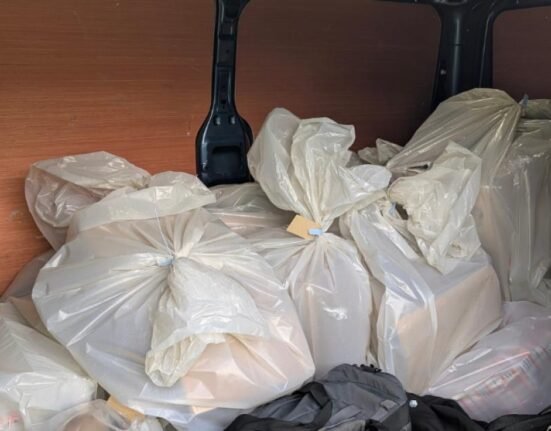NEW DELHI: In a historic move, Mexico’s national palace feline residents have been officially declared “living fixed assets” by the government of President Andrés Manuel López Obrador. This designation marks the first time animals in Mexico have received such a title.
Nineteen feral cats freely roam the iconic National Palace, a place steeped in history and culture, where they have become beloved fixtures.Jesús Arias, the palace veterinarian, noted their ubiquitous presence, mentioning how they casually stroll into meetings and even onto camera during interviews.
“They have access to every part of the palace, so they walk in on meetings, interviews and wander onto camera,” said Arias.
The decision to classify these cats as “living fixed assets” carries significant implications. Typically reserved for buildings and furniture, this label now ensures that the Treasury is obligated to provide for their food and care indefinitely, even after President López Obrador leaves office later this year.
Adriana Castillo Román, the general director of the National Palace and Cultural Heritage Conservancy, emphasized the symbolic importance of the cats within the palace grounds, highlighting their integral role in the historic site.
“The cats are now a symbol of the National Palace. Just as we understand this world, I wouldn’t understand the National Palace without the presence of these cats,” said the general director.
“Some employees that like cats would bring them leftovers from home and, every once in a while, canned food or rice and soup,” added Castillo.
Originally inhabited by Indigenous Emperor Moctezuma, whose culture revered Xoloitzcuintle dogs, the palace now hosts feline companions with names like Bowie, Coco, and Ollin. These cats, named after artists or native Aztec words, have become an integral part of palace life, often accompanying López Obrador during official ceremonies.
While the origins of the palace cats remain shrouded in mystery, staff members recall their presence dating back decades. Over time, efforts were made to ensure their well-being, including vaccinations, sterilization, and the provision of dedicated care by veterinarian Jesús Arias.
(With inputs from agencies)
Nineteen feral cats freely roam the iconic National Palace, a place steeped in history and culture, where they have become beloved fixtures.Jesús Arias, the palace veterinarian, noted their ubiquitous presence, mentioning how they casually stroll into meetings and even onto camera during interviews.
“They have access to every part of the palace, so they walk in on meetings, interviews and wander onto camera,” said Arias.
The decision to classify these cats as “living fixed assets” carries significant implications. Typically reserved for buildings and furniture, this label now ensures that the Treasury is obligated to provide for their food and care indefinitely, even after President López Obrador leaves office later this year.
Adriana Castillo Román, the general director of the National Palace and Cultural Heritage Conservancy, emphasized the symbolic importance of the cats within the palace grounds, highlighting their integral role in the historic site.
“The cats are now a symbol of the National Palace. Just as we understand this world, I wouldn’t understand the National Palace without the presence of these cats,” said the general director.
“Some employees that like cats would bring them leftovers from home and, every once in a while, canned food or rice and soup,” added Castillo.
Originally inhabited by Indigenous Emperor Moctezuma, whose culture revered Xoloitzcuintle dogs, the palace now hosts feline companions with names like Bowie, Coco, and Ollin. These cats, named after artists or native Aztec words, have become an integral part of palace life, often accompanying López Obrador during official ceremonies.
While the origins of the palace cats remain shrouded in mystery, staff members recall their presence dating back decades. Over time, efforts were made to ensure their well-being, including vaccinations, sterilization, and the provision of dedicated care by veterinarian Jesús Arias.
(With inputs from agencies)







